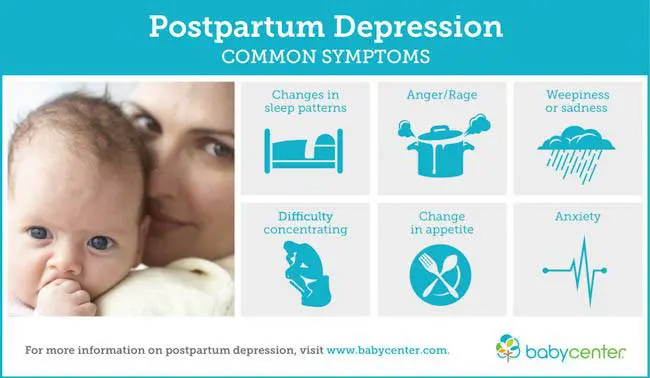ALL women are susceptible to Postpartum Depression, regardless of the outcome (miscarriage, live birth, still born, etc). Fluctuating hormones, an actual imbalance of chemicals in the brain, and lack of sleep all contribute to this disease. It’s estimated that 10 to 20 percent of new mothers will suffer from PPD (source here), though I speculate that that number should be higher, since many women don’t recognize or report/seek help for their depression. If you have ever wondered if what you are feeling can be considered Postpartum Depression, I’ll list some of what mine manifested as. My biggest hurdle while I was struggling was admitting to myself that I was depressed and needed help. It took a lot of courage to make that first step, and I encourage you to be brave and open up to someone, anyone, with your worries about your own mental health.
Postpartum Depression feels like you’re drowning in the ocean depths, but when others look at you, all they see is a two-inch puddle. They sometimes don’t understand.
It feels like constant comparisons between yourself and the world. Susan has five kids and still puts on make up every day. Kate is a single mother with two jobs and still gets her kids to school on time. Lauren suffers from cancer and still remains patient with her three kids under three. So what’s my problem? What’s my excuse?
It feels like unexplainable anger that appears at the drop of a hat, even when you know it’s an overreaction.
It feels like constantly standing on the brink of anxiety attacks.
It feels like doubt—doubts about your self worth, your parenting, your marriage, your life.
It feels like you just can’t make yourself move. You KNOW better; you see the empty fridge and know you have to go grocery shopping. You feel the urgency of your baby screaming. But for some reason, you just can’t physically move your body.
It feels embarrassing, thinking you can’t even handle your own feelings.
It feels like fear: SIDS, accidents, and worries that fly into your head so quickly that make you wonder where such disturbing thoughts came from?
It feels like soul crushing guilt, like your problems aren’t bad enough to be considered depression inducing.
It feels like confusion: Why did this happen to me? Why can’t I snap out of this?
It feels like justifications: when you swear you don’t have it so bad, when you convince yourself you aren’t to “that point” yet. But then you remember you DO cry on the bathroom floor so no one will see and you DO worry for yours and your baby’s safety. But still, you can’t be “that bad” yet…right?
It feels like anyone could do a better job than you and you pity your child for getting a mother who “just can’t deal with her emotions.”
It feels like unwanted change. You’re not the woman your husband fell in love with and you don’t even recognize yourself anymore. Didn’t I use to love dancing? When was the last time we went out? When did this all start?
It feels like no one will understand, so you swallow your pleas for help.
It feels like failure. You’ve failed as a mother, you’ve failed to keep up on chores, you’ve failed to appreciate all you DO have, and you’ve failed to see you’re not alone.
But Postpartum Depression can also begin to feel empowering…
It feels empowering as you finally confess your need for help and begin to climb out of the darkness.
It feels courageous because you put aside your pride and talked to your doctor about options.
It feels like incredible joy, as you bond deeper with your child and see all your hard work to overcome Postpartum Depression pay off.
It feels like an accomplishment when you’ve found the right balance of medication (or therapy or diet) that combats the imbalance of chemicals in your brain.
It feels like valuable experience that prepares you for future ups and downs of life.
It feels hopeful that there are brighter days ahead.
If you think you may be suffering from Postpartum Depression, you are not alone and it’s okay to ask for help. Postpartum Progress has a list of some PPD specialists in each state. See if there are any close to you.

